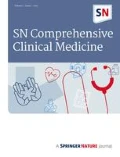Abstract
Hepatocellular carcinoma (HCC) is among the leading causes of cancer-related deaths with a very poor prognosis. Consequently, there is an urgent need for better understanding the molecular mechanisms, novel prognostic biomarkers, and more effective treatment options. There is an emerging link between oxytocin (OXT), the oxytocin receptor (OXTR), and cancer. However, the role of OXT or the OXTR in HCC remains unknown. The research question of this study was as follows: are there genetic alterations in the oxytocin (OXT) and oxytocin receptor (OXTR) genes in hepatocellular carcinoma (HCC) patients and do these alterations impact overall survival and disease-free survival? In this retrospective study, we reviewed 360 individual HCC patient data from The Cancer Genome Atlas (TCGA) using cBioPortal accessed in April 2018. The data in The Cancer Genome Atlas are from various institutions in the USA. We found that 3% (11 of 360) of cases showed genetic alterations in the OXTR gene. The median months survival was lower for HCC cases with genetic alterations in the OXTR gene as compared to cases without genetic alteration in this gene (33.0 versus 60.84, respectively. Additionally, the median months disease-free survival was lower in cases with genetic alterations in the OXTR gene as compared to cases without alterations (8.64 versus 21.55, respectively). OXTR is a promising prognostic biomarker for HCC, and OXTR antagonists could have a future role as therapeutic agents for a subset of HCC patients. Further study of the detailed molecular mechanisms of OXT and OXTR in HCC is warranted.


References
Tang A, Hallouch O, Chernyak V, Kamaya A, Sirlin CB. Epidemiology of hepatocellular carcinoma: target population for surveillance and diagnosis. Abdom Radiol (New York). 2018;43(1):13–25. https://doi.org/10.1007/s00261-017-1209-1.
Imanieh MH, Bagheri F, Alizadeh AM, Ashkani-Esfahani S. Oxytocin has therapeutic effects on cancer, a hypothesis. Eur J Pharmacol. 2014;741:112–23. https://doi.org/10.1016/j.ejphar.2014.07.053.
Lopatina O, Inzhutova A, Salmina AB, Higashida H. The roles of oxytocin and CD38 in social or parental behaviors. Front Neurosci. 2012;6:182. https://doi.org/10.3389/fnins.2012.00182.
Lerman B, Harricharran T, Ogunwobi OO. Oxytocin and cancer: an emerging link. World J Clin Oncol. 2018;9(5):74–82. https://doi.org/10.5306/wjco.v9.i5.74.
Taylor AH, Ang VT, Jenkins JS, Silverlight JJ, Coombes RC, Luqmani YA. Interaction of vasopressin and oxytocin with human breast carcinoma cells. Cancer Res. 1990;50(24):7882–6.
Whittington K, Connors B, King K, Assinder S, Hogarth K, Nicholson H. The effect of oxytocin on cell proliferation in the human prostate is modulated by gonadal steroids: implications for benign prostatic hyperplasia and carcinoma of the prostate. Prostate. 2007;67(10):1132–42. https://doi.org/10.1002/pros.20612.
Tribollet E, Dubois-Dauphin M, Dreifuss JJ, Barberis C, Jard S. Oxytocin receptors in the central nervous system. Distribution, development, and species differences. Ann N Y Acad Sci. 1992;652:29–38.
Daher S, Massarwa M, Benson AA, Khoury T. Current and future treatment of hepatocellular carcinoma: an updated comprehensive review. J Clin Transl Hepatol. 2018;6(1):69–78. https://doi.org/10.14218/JCTH.2017.00031.
Villanueva A. Hepatocellular carcinoma. N Engl J Med. 2019;380(15):1450–62. https://doi.org/10.1056/NEJMra1713263.
Amico JA, Finn FM, Haldar J. Oxytocin and vasopressin are present in human and rat pancreas. Am J Med Sci. 1988;296(5):303–7.
Funding
Olorunseun O. Ogunwobi is supported by the National Cancer Institute grant # 1 U54 CA221704-01 A1.
Author information
Authors and Affiliations
Corresponding author
Ethics declarations
Conflict of Interest
Olorunseun O. Ogunwobi is a Co-Founder of NucleoBio, Inc., a City University of New York start-up biotechnology company. There are no other conflicts of interest relevant to this article.
Ethical Approval
The analysis was performed using publicly available de-identified data from The Cancer Genome Atlas. Ethical approval was unnecessary for this analysis.
Informed Consent
There was no interaction with human subjects or identifiable human subject information. Hence, informed consent was unnecessary for this analysis.
Additional information
Publisher’s Note
Springer Nature remains neutral with regard to jurisdictional claims in published maps and institutional affiliations.
This article is part of the Topical Collection on Medicine
Rights and permissions
About this article
Cite this article
Harricharran, T., Ogunwobi, O.O. Oxytocin Receptor Genetic Alterations in Hepatocellular Carcinoma. SN Compr. Clin. Med. 1, 523–526 (2019). https://doi.org/10.1007/s42399-019-00085-2
Accepted:
Published:
Issue Date:
DOI: https://doi.org/10.1007/s42399-019-00085-2

